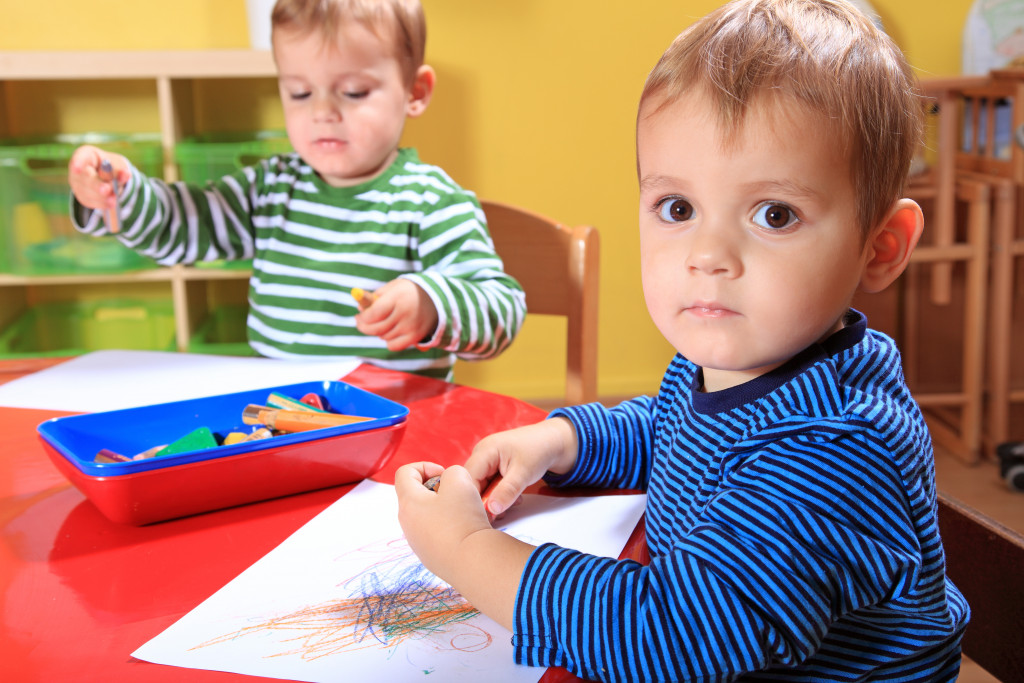- Self-esteem, crucial for child development, derives from accomplishments, relationships, physical appearance, achievements, and abilities.
- Formed during early childhood, self-esteem is influenced by parent-child interactions and the messages children receive.
- Low self-esteem can negatively impact a child’s mental and physical health, leading to various issues such as depression.
- Improvement strategies include providing appropriate clothing, fostering a growth mindset, setting positive examples, encouraging activity participation, and practicing self-care.
- Unconditional love, support for interests, and positive messaging about self-worth can help children develop high self-esteem and confidence.
As parents, you want your children to grow up with high self-esteem and confidence. After all, self-esteem is the foundation upon which children grow into happy, healthy, and productive adults. However, achieving this goal is not always easy. Besides, many influences, such as family, peers, school, and community, affect your child’s self-esteem. Moreover, it is easy for self-esteem to plummet, especially when children encounter challenges or difficulties. Here’s what you need to know about self-esteem among children and ways you can improve it.
What is Self-Esteem?
Self-esteem refers to how people view themselves. According to the American Psychological Association (APA), self-esteem is “an individual’s overall sense of self-worth.” This self-worth comes from accomplishments, relationships, physical appearance, achievements, and abilities. While having low self-esteem is not always bad, it can lead to depression, anxiety, and an overall negative outlook on life. Here are some things you need to know about self-esteem:

1) Child And Parent Interactions
Understand that self-esteem is not an inherent trait but a product of environmental and parent-child interactions. Children develop self-esteem based on the messages they receive from their environment and interactions with their parents and others. Therefore, as parents, you must create a positive and supportive environment that cultivates self-esteem in your children. It’s an essential part of every child’s growth.
2) Formed in Early Childhood
Research shows that self-esteem is formed early in a child’s life, usually early childhood. So, the messages your child receives during this period, whether positive or negative, have a long-lasting impact on their self-esteem. Therefore, ensure that you use positive and supportive parenting strategies from the outset, avoid criticizing your child, and give them unconditional love.
3) Mental and Physical Health
Low self-esteem can affect a child’s mental and physical health, leading to anxiety, depression, self-doubt, and physical illnesses. Therefore, it is critical to help your child develop high self-esteem early in life, as it will affect their overall well-being. Encourage your child to engage in activities they enjoy, praise their efforts, give positive feedback, and help them develop a positive self-image.
Improving Your Child’s Self-Esteem
Thankfully, there are various ways you can improve your child’s self-esteem. Here are five ways:

Right Clothes
Children can learn fashion at an early age, and this can help improve their self-esteem. So, ensure that your child has access to the right clothes and encourage them to dress in a way that reflects their personality and style. It’s also good to invest in a high-quality children’s occasion wear. They can wear it to special events like weddings, birthday parties, or even school trips. Their self-esteem will certainly skyrocket during these events.
Growth Mindset
A growth mindset is the belief that one can learn and improve through effort and practice. Help your child develop a growth mindset by praising their effort and hard work rather than their intelligence or talents. Encourage them to take on challenges, learn from their mistakes, and believe they can grow and improve.
Be a Positive Role Model
Children learn by example, so be a positive role model for your child. Cultivate high self-esteem and positive self-talk, and avoid criticizing yourself or others in front of your child. Also, be empathetic, listen to your child’s feelings and thoughts, and show unconditional love and support.
Encourage Participation in Activities
Enrolling your child in activities helps them develop their skills and gain a sense of accomplishment. It also allows them to interact with other children and build relationships. All these will boost your child’s self-esteem.
Practice Self-Care
Self-care is essential for improving self-esteem. Model self-care to your children and encourage them to practice it daily. This can be anything from having a healthy breakfast for energy, walking in the park, or reading a book for relaxation.
Your children’s self-esteem should be a priority. With the above tips, you can ensure your children grow with high self-esteem and confidence. Remember to give them unconditional love, support their interests, and create positive messages around self-worth. This will help your child develop healthy relationships with others and become confident adults.





